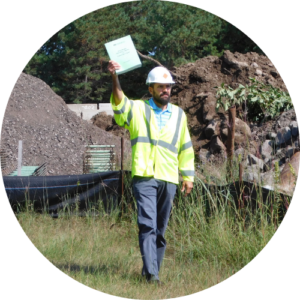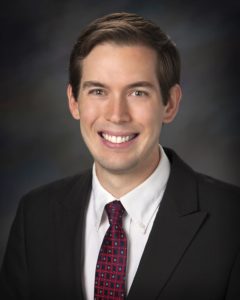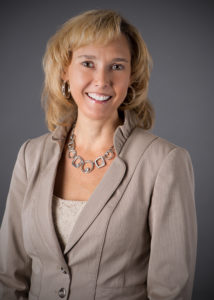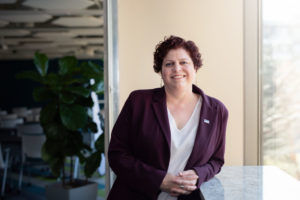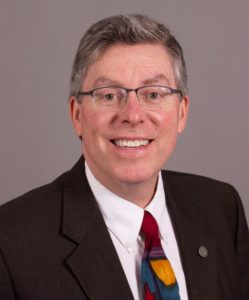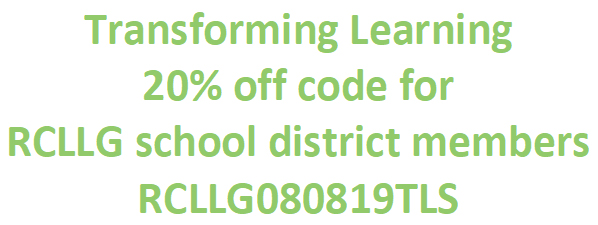City Engineers Association of Minnesota
UPCOMING EVENTS
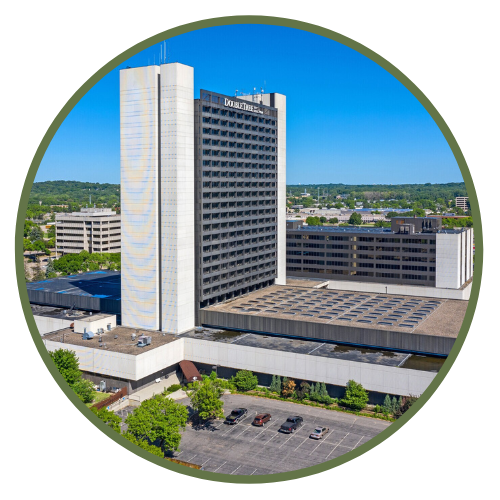
2025 CEAM ANNUAL CONFERENCE
January 29 – January 31, 2025
Join us at the Double Tree in Bloomington for opportunities to see how other cities are using new technologies and developing innovative construction projects, as well as a chance to network with other professionals and peers.
DoubleTree by Hilton Hotel Bloomington
7800 Normandale Blvd, Bloomington, MN 55439
2025 CONFERENCE KEYNOTE
World Authority on Complaining
Wednesday, January 29th
As the World Authority on Complaining, Will teaches a powerful and simple framework that your audience will both remember and use. Weaving inspiring stories and humor along with life-changing information, Will teaches how to identify the real reason behind every complaint AND what to say to spin that complaint into a positive contribution. After decades of unprecedented sales success in insurance, broadcasting, and advertising, on July 23, 2006 Will Bowen’s life changed forever…and so did the lives of tens of millions of people (so far).
On that day, Will invited 250 people to try and break the negative habit of complaining by going 21 consecutive days without uttering a single gripe.
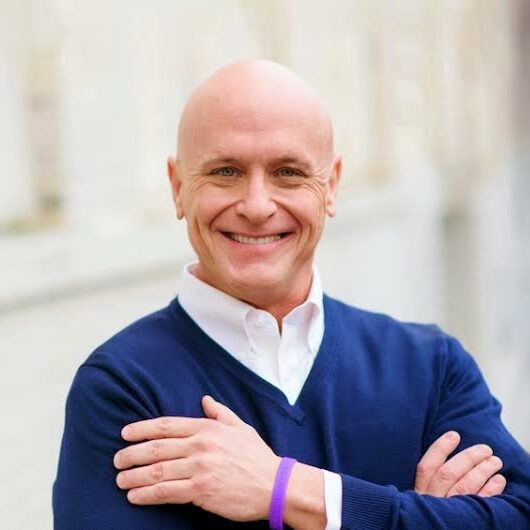
Will Bowen
Keynote Speaker
2025 Keynote – Information coming soon!
REGISTRATION
Conference Registration Fees
- $450: Full/Associate Members – Conference Only
(All-access to the conference Wednesday, 1/29 – Friday, 1/31 – Including both receptions.) - $400: Affiliate Members – Conference Only
(All-access to the conference Wednesday, 1/29 – Thursday, 1/30 – Including both receptions.) - $50: If Affiliate members would like to include Friday, 1/31
(You must be registered for Wednesday and Thursday.)
Annual CEAM Membership + Conference Registration
Participants may also pay for their Annual CEAM membership ($100 for Full/Associate, $75 for Affiliate) while registering for the conference.
Information about CEAM membership is available here.
- $550: Conference ($450) + CEAM Full/Associate Membership Renewal ($100)
- $475: Conference ($400) + CEAM Affiliate Membership Renewal ($75)
Lifetime Members
Those who want PDHs and anyone not renewing a CEAM Membership.
- $450: Conference ONLY
Includes the registration fee ($450) only.
CEAM Membership Renewals Only.
Does not include access to Annual Conference.
- $100: Full/Associate CEAM Membership Renewal Only
- $75: Affiliate CEAM Membership Renewal Only
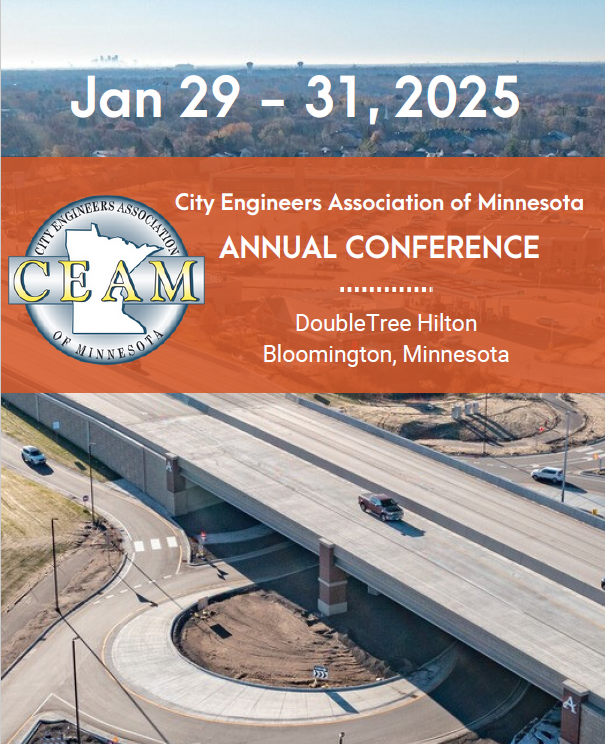
2025 SESSION SCHEDULE
Filters
Wednesday, Jan 29, 2025
Sessions
Profiting From A Complaint Free Workplace
Location: Ballroom
Speakers:
People complain for only one of five reasons remembered by the acronym G.R.I.P.E. -- Get attention, Remove Responsibility, Inspire envy, gain Power, and to Excuse their poor performance. Understanding the real motivation behind any complaint and how to address each type of complaint will dramatically improve employee retention, workplace culture, customer relationships, sales, and profitability.
MnDOT Safe Systems Approach
Location: Ballroom
Speakers:
The Safe System Approach is a holistic approach to transportation system safety that is based on the recognition that people will make mistakes, but the consequences of those mistakes can be mitigated through the design of the systems in which they operate. MnDOT is developing an action plan for more effectively integrating the Safe System Approach that will identify policies, tools, strategies, actions, and performance measures for including safe system concepts into programming and project delivery processes. The presentation will highlight action plan elements and discuss how MnDOT and local agencies can work together in the coming years to reduce the risk of life changing crashes on Minnesota roads.
Easement Acquisition 101
Location: Atrium 6
Speakers:
Do you have a project on the horizon that may require some easement acquisition or are you interested in learning more about easements and the process for acquiring them? If so, this is the session for you! This session will give an overview of the process from the early concept stages of researching existing easements, determining easement widths and types of easements, to developing parcel sketches, and navigating through the appraisal process, negotiations and condemnation. A panel of right-of-way acquisition experts will be on hand to explain the process, timelines, schedule and cost that you can anticipate along the way.
Profiting From A Complaint Free Workplace: Deep Dive
Location: Atrium 4
Speakers:
A deeper discussion on the lessons learned from Keynote, Will Bowen.
Infrastructure Funding Strategies for Local Improvements
Location: Plaza 1
Speakers:
This session will explore the intricacies of funding infrastructure projects, with a focus on securing and managing grants. The more common funding programs, like LRIP, Capital Investment Bonds, U.S. discretionary grants, and regional solicitations for federal transportation funds. We’ll discuss how to identify and leverage smaller, less common grants that still contribute meaningfully to local projects. The session will also address the grant application process, emphasizing how effective transportation planning and early project development can streamline and prioritize applications. We’ll explore the role of lobbying and the financial costs involved in pursuing these funding opportunities. Finally, administering grants can be a complex process. How much time and effort should municipalities invest in managing these funds, and is the gain worth the administrative pain? Attendees will leave with a clearer understanding of how to balance effort with reward, maximizing the impact of infrastructure investments.
Managing the Public Right-of-Way
Location: Plaza 2
Speakers:
Local agencies are tasked with managing the public right-of-way and the many challenges that accompany that role. We will start with an introduction and overview of the role and responsibilities of the local agencies in permitting this work and then we will hear from a panel of city representatives who will share their perspectives and experiences on a range of right-of-way management topics. Examples of topics we plan to cover include: issuing permits to private utilities, requiring safe work-zone traffic control, restoration requirements and enforcement techniques, ROW encroachments, clear view triangle obstructions, staffing huge influxes of permit applications and work (fiber), managing the public expectations of private work in the right-of-way.
Traffic Safety and Speed Camera Enforcement Overview
Location: Plaza 4
Speakers:
Recently adopted HF 5247 omnibus bill provides authority for a traffic safety camera local pilot program in Minneapolis and Mendota Heights starting August 1, 2025. The bill also directs MnDOT and the Department of Public Safety to conduct a work zone speed camera pilot program. Speakers will provide an overview of the pilot programs and how the organizations plan to implement, evaluate and provide reporting. The session will focus on camera enforcement for speeding and red light running.
Engage & Evolve: Engineering with Community in Mind
Location: Plaza 5
Speakers:
Public engagement is a key component of civil engineering projects, as it can foster trust, collaboration, and innovation between engineers and the public. However, public engagement can also pose many challenges, such as conflicting interests, communication barriers, and ethical dilemmas. How can civil engineers design and implement effective public engagement strategies that balance the technical, social, and environmental aspects of infrastructure projects? In this session, you will learn from two cities that demonstrate how public engagement can enhance the outcomes and impacts of civil engineering projects. The first is the City of Burnsville's philosophy of public engagement, which uses their engagement vehicle (EVA) to bring open houses into neighborhoods aiming to make participation simple and empowering to stakeholders. The second is a case study of the City of Bloomington's Nine Mile Creek Corridor project, which involves extensive public consultation and collaboration to revitalize a creek corridor and park area. The project also involves contentious public debate over the types of improvements that should be included. You will gain practical tips and tools for planning, conducting, and evaluating public engagement activities in your own projects.
Navigating the storm: Increasing rainfall and flood modeling/prediction tools
Location: Plaza 6
Speakers:
In an era of increasing climate variability, effective flood management is more critical than ever. This session will delve into the latest advancements in rainfall data and modeling tools that are essential for planning, preparing for, and responding to flooding events. NOAA Atlas 14 currently provides comprehensive precipitation frequency estimates for Minnesota, offering critical data for infrastructure design and floodplain management. Plans are underway for release of NOAA Atlas 15, which will represent the next generation of precipitation frequency data, incorporating the latest climate science and projections. The session will also highlight a range of modeling tools to help plan for, prepare for, and respond to extreme storm events, including an overview of Flood Predictor, an innovative machine-learning based tool to predict regional flood risk in near real time.
Engineering Inclusion: How Equity Work Creates an Environment Where Everyone Can Thrive
Location: Ballroom
Speakers:
Join us for an insightful session on how unraveling the complexities of Diversity, Equity, and Inclusion (DEI) can unlock new opportunities for innovation and collaboration. This session aims to equip engineers with the knowledge and strategies necessary to foster an inclusive work environment that values and leverages diverse perspectives. We will delve into the principles of DEI, discuss common challenges faced by city engineers, and provide practical solutions to integrate DEI practices into your projects and teams. Attendees will have the opportunity to engage in meaningful discussions, share experiences, and gain valuable insights into creating equitable and inclusive workplaces.
Looking Ahead to the 2025 Legislative Session
Location: Ballroom
Speakers:
Join Anne Finn from the League of MN Cities and Marc Culver, CEAM Legislative Chair, as we look ahead to the 2025 Legislative Session and the Legislative Priorities that are important to our industry.
What is Up With Minnesota Speed Limits - Minnesota's Speed Limits Vision in Motion
Location: Ballroom
Speakers:
Helen Keller, stated that “The only thing worse than being blind is having sight but no vision.” A Unified Vision for Speed Limits was developed in December 2022 through a collaborative partnership with local agencies, stakeholders, advocates, MnDOT and State Aid (Phase 1). In Phase 2, the Vision was placed in motion with a major milestone completed in Spring 2024. In this session we will hear from State Aid on the latest and greatest research, resources, and tools on the topic of setting speed limits. We will hear from a local agency sharing data and results of speed limit changes in their city. And lastly, get an update on the recent hot topics related to speed limits with the Minnesota legislature.
Thursday, Jan 30, 2025
Sessions
Describe, Explain, and Predict: Making Sense of the 2024 Election
Location: Ballroom
Speakers:
The first appearance of Professor David Schultz at the CEAM Conference was a session to recap the 2016 election. Eight years later Professor Schultz returns to provide an energetic and objective presentation covering the 2024 election, the past twelve months, the present status, and the future outlook. Where do things stand today? How will the election results play out over the next several years? The takeaway will be what all of this means for local government, with respect to funding and support for infrastructure projects, implications for staff relations with new city councils and the public, and the outlook for city government in general.
YOUR Local Road Research Board
Location: Ballroom
Speakers:
Presentation includes update on topics currently being studied by the Local Road Research Board of interest to City Engineers.
Case Studies – Projects that ended in Litigation and what we can learn
Location: Ballroom
Speakers:
One of last year’s highest scoring presenters, attorney Jeff Coleman, returns and will leverage his dual expertise as a professional engineer and attorney, sharing insights and specific examples from his practice to address the myriad legal challenges faced by communities and city engineers, particularly in public infrastructure projects. He will discuss the public officials' responsibility to mitigate community risk while ensuring public health and safety. The presentation will cover a range of critical legal topics, such as personal liability, public immunity, and risk management in construction contracts, among others. Coleman's practice, which focuses on construction law, professional liability defense, and business law, also provides guidance on contract negotiation and claims resolution.
Ethics: What were they thinking? Case studies on engineers gone bad.
Location: Ballroom
Speakers:
Professional ethics encompasses many aspects – trust, relationship building, collaboration, problem solving, and decision making. Professor Schultz will be bringing forward engineering case studies, drawing upon a basis of authentic stories, talk through what happened, how it happened and walk through the ethics involved. The content of this session will also count toward the continuing education requirement for ethics in Minnesota PE licensure.
Beyond the Blueprints: Effective Resident Communication for Engineers & Staff
Location: Atrium 4
Speakers:
This session will focus on communication techniques that you can use on a daily basis. It will discuss how active listening and emotional intelligence can be utilized to provide both respectful and timely responses for all situations. These practical techniques will help you reduce misunderstandings, avoid and mitigate conflicts, and provide a better work environment.
Top 10 Effective Leadership Techniques
Location: Atrium 6
Speakers:
The quality of an organization’s managers and team leaders is the single biggest factor in that organization’s success. Many leaders are promoted based on technical skill but are not provided with tools and development for effective people management. At this session, you’ll learn the top ten best practices great leaders do to inspire and motivate their staff. You’ll hear real world examples and gain practical tips you can implement on your very next day back in the office. Ali Timpone is the HR Director for the City of Plymouth and has over 21 years of public sector human resources experience.
Construction Hot Topics for the 2025 Construction Season
Location: Plaza 1
Speakers:
Want to learn more about the hot topics for the upcoming 2025 construction season regarding all things bituminous, concrete and federal aid? If so, then join this session to hear from the MnDOT experts from the bituminous, concrete and state iad/federal aid construction support offices. Presenters will discuss current hot topics regarding the latest bituminous and concrete specifications as well as the most common errors and field inspection questions they get. State Aid construction support will also present the most recent federal aid audit findings to better prepare staff for your next federal aid job.
Communications Plan 101
Location: Plaza 2
Speakers:
In today’s fast-paced environment, cities must be prepared to communicate clearly and effectively on critical issues such as city-led initiatives, natural disasters, and state or federal government mandates. This session will provide city leaders with a comprehensive roadmap for developing a successful communications plan tailored to these specific topics. Participants will learn how to craft a compelling story that resonates with their communities, identify and segment target audiences for more impactful outreach, and create clear, concise messaging that addresses both the technical aspects and emotional concerns of their residents. The session will also emphasize the importance of timing and execution, with actionable strategies for leveraging digital, print, and in-person communication channels to maximize engagement. Whether you are facing an emergency like a natural disaster or need to navigate the complexities of compliance with new regulations, this session will provide you with the tools to build trust and transparency, minimize public confusion, and ensure your communications are well-received. Join us to enhance your city’s ability to convey critical information when it matters most.
Quick Tips for Preparing for the Media
Location: Plaza 4
Speakers:
Do you cringe when you pick up the phone and hear a reporter’s voice on the other end? If so, worry no more. A panel of media experts will share useful tips and real-life experiences during a fast-paced session focusing on preparing for media interviews. After this session, you will feel confident in leveraging the news media to share facts and impacts about your projects.
Climate Resilience: Strengthening Our Communities for a Changing Future
Location: Plaza 5
Speakers:
Climate change and resiliency planning continues to be a topic of growing interest in our communities, with many local governments developing resilience plans and considering ways to improve the resiliency of our infrastructure and programs. On a state level, significant funding is being invested toward helping cities and other local governments become more prepared for a changing climate, including over $100 million dedicated during the 2023 legislative session for climate resiliency and climate action, Minnesota’s most significant investment in climate resilience to date. This session will explore resiliency planning, a process to identify potential community hazards and threats and develop adaptation and mitigation plans to help minimize impacts. We will learn about climate change concepts, planning processes, and an overview of MPCA climate resiliency grant opportunities. We’ll also learn about the City of Rochester’s Sustainability and Resiliency Community Work Plan.
RFPs: The Good, the Bad, and the Ugly
Location: Plaza 6
Speakers:
A good Request for Proposal (RFP) is essential for City Engineers and their staff who want to hire a qualified consultant for their project. It should clearly define the scope and expectations of the work, as well as the criteria for evaluation and selection. However, consultants often face difficulties in responding to RFPs that lack crucial information, have unrealistic deadlines, or are too ambiguous. This session brings together a panel of experienced RFP issuers, moderated by consultants, to share some best practices and tips on how to write effective and clear RFPs.
Turning Tension into Triumph – Strategies for Managing Conflict and Difficult Meetings
Location: Atrium 6
Speakers:
In the dynamic of city council and community meetings, conflicts and challenging discussions are inevitable. This session offers practical tools and strategies to effectively navigate these complex interactions. Participants will explore techniques for de-escalating tension, fostering productive dialogue, and reaching consensus in the face of disagreement. Through real-world examples and a career full of learned lessons, Dave will guide attendees through a series of best practices to achieve positive results.
Your Roadmap to BMPs for Linear Projects: Planning, Design, Construction, Maintenance, and Reporting
Location: Atrium 4
Speakers:
Meeting stormwater regulations can be difficult, particularly on linear projects with limited right of way, access and utility limitations, and future maintenance considerations. This session will provide guidance on BMPs for linear projects and how to incorporate proactive approaches to planning, designing, and implementing stormwater management on linear projects.
Communications for Mitigating and De-escalating Tense Projects/People
Location: Plaza 1
Speakers:
This session will cover skills to manage tense situations effectively and professionally. The training focuses on active communication techniques that can be used to diffuse potential conflicts between the inspectors, contractors, and the public. It will discuss how to recognize early signs of frustration, anger, or misunderstanding. It will also provide practical strategies for calming individuals, addressing concerns, and resolving disputes without confrontation. By mastering these techniques, you will be able to maintain safety, foster positive relationships, and ensure smooth project progress while mitigating stress on the construction site and office.
Elevate Your Pavement Game: Pavement Management Strategies for Cities of All Sizes
Location: Plaza 2
Speakers:
Panel discussion on Pavement Management Techniques and Best Practices that caters to cities of all sizes and levels of program sophistication. This session will bring together experts from a diverse range of municipalities, offering a comprehensive look at how different cities effectively manage their pavement assets. Hear firsthand from cities that employ cutting-edge asset management software that integrates data analytics and predictive modeling to optimize pavement maintenance and budgeting, enhancing decision-making and extending the lifecycle of pavement infrastructure. In contrast, discover the strategies of cities that rely on more straightforward methods, such as simplified pavement rating systems and spreadsheets which will help cities with limited resources manage and prioritize pavement projects. Whether you're from a larger, bustling city or a smaller community, this panel discussion offers valuable takeaways for everyone. Gain a deeper understanding of how varying levels of technology and resources impact pavement management, and explore actionable strategies that can be tailored to your city's unique needs. Don't miss this opportunity to enhance your pavement management knowledge and hear from professionals facing similar challenges.
PROWAG and ADA Updates
Location: Plaza 4
Speakers:
This session will provide an update on the Public Right of Way Accessibility Guidelines that were updated in 2023 and will help differentiate between other accessibility standards. We will review the rules, laws and standards and provide examples of how they are implemented. The compliance, complaint and grievance process will be outlined. The goal of the session is to not just know the minimums to meet, but have a better understanding of good accessible design.
Sanitary Sewer Lateral Lining - Lessons Learned
Location: Plaza 5
Speakers:
The City of Newport is a small community situated along the Mississippi River in south Washington County. The majority of the City’s sanitary sewer collection system was constructed in the mid-1960’s using vitrified clay pipe (VCP) sewer mains and cast-iron lateral services. The utilities were constructed within bedrock trenches that act as a French drain during periods of heavy rain, seasonal high-ground water and flooding. Due to poor construction practices at the time of installation, the collection system is inundated with excessive amounts of ground water from the surrounding rock trench. The peak discharge following a spring storm in 2014 was over ten times the average daily flow from the City. As part of the City’s I-I Mitigation program, Newport commissioned a project to install approximately 150 lateral pipe liners for a targeted area of the collection system most susceptible to groundwater infiltration. The City let a contract with Musson Brother’s Inc to install the lateral liners and to perform other I-I mitigation efforts in the summer of 2023. Our presentation will focus on the evaluation of the collection system for compatibility for lateral lining; lateral liner installation basics and options; unexpected pipe configurations and challenges during construction; before and after videos; overall success of the project and other lessons learned.
GIS and Asset Management Applications for Municipal Engineers and Technicians
Location: Plaza 6
Speakers:
Geographic Information Systems (GIS) are powerful tools for collecting, managing, analyzing, and visualizing spatial data. GIS can help with tasks such as asset management, project selection, and project management. In this session, you will learn about the basics of GIS, the types of data and tools available, and the best practices for applying GIS to engineering projects and asset management. You will also see some examples of how GIS can be used to solve real-world problems in different engineering settings.
Speaking with Impact: The Power of Effective Public Speaking
Location: Ballroom
Speakers:
In today’s fast paced and polarized world, effective communication is key – especially in technical fields. This will be an engaging session that combines the essentials of technical and public speaking. We’ll learn how to best approach complex topics and convey them in clear, impactful messages, helping you to connect with both technical and non-technical audiences. Through practical, real-world examples, you will learn how to structure your talks, use visuals effectively, and engage your listeners. Whether you’re presenting at a conference, leading a team meeting, or sharing ideas with stakeholders, this session will equip you with the skills to communicate with confidence and clarity.
Friday, Jan 31, 2025
Sessions
MnDOT Commissioner
Location: Ballroom
Speakers:
The MnDOT Commissioner will provide an update on MnDOT activities as well as state-wide priorities and initiatives.
MnDOT State Aid
Location: Ballroom
Speakers:
State Aid staff will provide an update on various items and activities that impact, affect, and benefit local agencies.
Perfluoroalkyl Substances (PFAS): What City Engineers Need to Know
Location: Ballroom
Speakers:
Known as the “forever chemicals” Per-and Polyfluoroalkyl Substances (PFAS) are a group of chemicals that have the strongest carbon-fluorine bonds in organic chemistry. In other words, they don’t break down naturally. This session will provide a speaker from the Minnesota Department of Health to explain how the department is responding to regulation updates and reports, as well as provide an update on how they are working through guidance on health-based values for human consumption. There will be additional discussion on funding elements that may be available to agencies in the future. Ryan Stempski will also be available to discuss a specific case study and how it impacted the local community of Hastings.
AI: What it is and how will it impact our industry?
Location: Ballroom
Speakers:
Artificial Intelligence (AI), also called machine intelligence, is readily available and impacting our lives and industry. This session will provide an overview of how AI actually works in our industry. Following the overview, a specific example of using AI to drive decision support on a SMART Corridor will be presented.
Ali Timpone
Ali Timpone is the HR Director for the City of Plymouth and has over 21 years of public sector human resources experience. She holds a Bachelor's degree in Business Management with a Human Resources concentration from St. Cloud State University and a Master's degree in Human Resources and Industrial Relations from the Carlson School of Management at the University of Minnesota. Ali lives in the metro with her husband and two elementary-aged kids, who only occasionally respond well to her expert leadership techniques.
Alida Tieberg
Alida Tieberg is a communications coordinator with the League of Minnesota Cities, promoting member services and events through traditional and digital channels. Previously, she worked for a local government website company and on various political campaigns. She holds a Bachelor's degree in political science and journalism from the University of Minnesota Twin Cities.
Amber Jacobson
Amber Jacobson is the Experience & Engagement Manager with the City of Burnsville. She has been working in the government engagement field for over 15 years.
Anne Finn
Anne Finn is intergovernmental relations director for the League of Minnesota Cities (LMC). Since 2000, she has represented the League and its member cities before the state legislature and other levels of government on issues involving public safety, transportation, public pensions and local decision-making authority. Anne’s background includes a combination of legislative and local government experience. She holds a Bachelor of Arts degree in government from the College of Saint Benedict and a Master of Arts degree in public administration from Hamline University.
Ashley Klemer
Ashley is the City of Bloomington’s main writer and photographer. She assists with media relations and produces and edits content for two newsletters, annual reports, press releases, and social media posts. She’s passionate about showing the human side of local government and making connections between communities through storytelling.
Bob Simons
Graduated from the University of MN - Twin Cities with a bachelors degree in Civil Engineering. I currently lead the Street Design & Infrastructure area of Engineering at the City of Bloomington and have been working in the industry for nearly 20 years.
Brandon Barnes
Brandon is a Vice President and Senior Water Resources Engineer with Barr Engineering Company and has more than 18 years of experience providing a wide range of water-resource management services. A highly regarded hydrologic and hydraulic modeler, his project work includes design of municipal storm sewer systems, coincidental-frequency analyses, flood-protection, floodplain, drainage, and watershed-improvement projects. He enjoys evaluating existing systems and identifying strategies to optimize system performance to improve system resiliency and reduce flood risk.
Brian Hansen
Brian is the Development Coordinator and ROW Permit Manger for the City of Bloomington. He has been with the City for 19 years. In 2024 he oversaw the permitting of approximately 700,000 fr of pipe and conduit with a majority of that being fiber optic construction.
Brian Rivers
Brian is a compliance engineer with MDH who is implementing the PFAS National Primary Drinking Water Regulation in Minnesota. Brian coordinates monitoring, data review, and public outreach while responding to compliance questions related to the new rule. He's also involved in updating the PFAS Interactive Dashboard and MDH's internal database.
Brian Sorenson
For 6 years, Brian Sorenson has been the State Traffic Engineer with MnDOT’s Office of Traffic Engineering (OTE), which provides statewide guidance and support in the areas of Signing, Signals & Lighting, Traffic Standards, Pavement Markings, Work Zones, and Traffic Safety. Brian also serves as one of three co-chairs of Minnesota’s Towards Zero Deaths program, and as vice-chair of the Advisory Council on Traffic Safety. Prior to joining MnDOT, Brian had the privilege of working directly with the cities during his tenure with both the Scott County and Dakota County Transportation Departments, and is a proud alum of South Dakota State University (Go Jacks!).
Chelsea McCullough
Chelsea McCullough focuses on the intersection of ethical AI, smart cities, and the social good. She is the Founder of Digi.City, a Director for Smart Cities Connect, and a researcher for Good Systems at the University of Texas at Austin. Chelsea is an NSF NRT Fellow in Ethical AI and is pursuing her PhD in Information Science at UT Austin.
Chris LaBounty
Chris has been serving as the Public Works/Engineering Director for the City of Maple Grove over the last year. His previous work experience includes supporting cities of all sizes through both public and private experience, most recently serving as the Deputy Public Works Director/City Engineer for the City of Plymouth. Chris is a proud husband, father of two, and graduate of Marquette University.
Cindy Voigt
Cindy Voigt is a licensed professional engineer with a B.S in Civil Engineering from the University of Minnesota. Cindy is currently employed as Duluth’s “City Engineer”. She serves on multiple LRRB Committees and is active with State Aid Rules and the Screening Board. She has had a successful run obtaining both Federal and LRIP grants in the last few years.
Dave Bartholomay
Dave Bartholomay is a mediator, a public sector leadership consultant, and a Mayor. In each of those roles he has faced conflict and tension, so he is well-versed on making messy situations better whether that is with staff, with elected officials, or with the public. He is in his 20th year as the Mayor of Circle Pines and has served Governors and Congressmen, so he knows and appreciates the particular challenges of working in the public sector.
Dave Wisniewski
David Fenley
David Fenley has been with the Minnesota Council on Disability since 2014. He transitioned from legislative work to ADA education and outreach throughout Minnesota. David, a certified access specialist, informs entities across the state about disability rights, ADA obligations, Minnesota’s Accessibility Code, and digital accessibility.
David Schultz
Deb Heiser
Don Reeder
Don Reeder is the Public Affairs Coordinator for the League of Minnesota Cities where he provides communication consulting services for member cities. Don is also a frequent presenter, writer, and media relations specialist who loves coffee, nonfiction books, and dogs.
Emily Jennings
Emily is a senior professional engineer specializing in municipal, industrial and construction stormwater permitting, hydraulic and hydrological analysis, permanent stormwater management facility design and stormwater conveyance modeling and design, including roadways and ditches. Emily's project experience includes stormwater related feasibility studies, planning, analysis, final design, and construction. Emily has extensive experience in assisting clients with maintaining compliance with stormwater regulation, policy, and infrastructure.
Erin Anderson Wenz
Erin has over 27 years of experience working on projects involving hydrology and hydraulics, including both stormwater and lake water quality management for watershed districts and municipalities. She has managed strategic lake management plans as well as total maximum daily load (TMDL) studies for Minnesota water bodies. Her project work also includes the creation of watershed and municipal stormwater management plans and the design and construction of low-impact development features such as rain gardens, biofiltration basins, porous pavement, and tree trenches for both large and small retrofit sites. Erin has also worked on climate change adaptation plans, flood risk reduction studies and their related project implementation. Erin is also trained in applying the Envision™ Sustainable Infrastructure Rating System to projects.
Ethan Fawley
Ethan manages City of Minneapolis Vision Zero work to get to zero traffic deaths and severe injuries. He is the project manager for the Minneapolis traffic safety camera pilot and was involved in shaping details for the pilot's legislative authority. Ethan grew up on a gravel road outside of Moorhead and now lives with his wife and 10-year old son in Minneapolis.
George Bender
Mr. Bender has been the Assistant City Engineer over the last 7 years for the City of Chanhassen. He previously worked for private engineering firms and has been in the engineering industry for a total of 28 years. George works closely in regards to the pavement management strategies utilized by the Chanhassen.
Heather Hegi
Heather is the GIS Specialist for the City of Golden Valley and has been building out their GIS and Asset Management program since 2010. She is a 2011 graduate of the Masters of GIS program at the University of Minnesota. She works closely with Engineering and Public Works staff to develop ways to perform work more efficiently, and to provide better data for decision makers using GIS and Asset Management.
Jack Sullivan
Jack Sullivan is an engineering project manager with the City of St. Louis Park. His focus is improving the city’s municipal infrastructure with an emphasis on multi-modal projects that provide a variety of options for people to make their way around the city comfortably, safely and reliably.
Jason Egerstrom
Since joining the City of Woodbury in 2001, Jason has led communications efforts on numerous infrastructure projects, including the construction of a water treatment plant currently underway. He holds a bachelor’s degree in journalism from the University of Wisconsin-River Falls and previously spent time working with the Associated Press and the Kansas City Chiefs public relations department. He is a longtime member of the Minnesota Association of Government Communicators, serving on the board from 2010-2013.
Jeffrey Coleman
Jeff Coleman is a licensed engineer and practiced as a structural engineer, he is a licensed attorney and has represented engineers and practiced construction law for 40 years. He is the only attorney who is a Fellow of the American Concrete Institute and served as the ACI President in 2020-2021. He has been involved with many significant cases including the 35W bridge collapse, the Florida FIU bridge collapse, Stillwater bridge, I-74 bridge/Quad Cities, Notre Dame Football Stadium and the Duluth Aquarium. He is also not just a private pilot, he is a seaplane pilot.
Jessie Dehn
Graduated from Minnesota State Mankato and has since worked for government, from rural highways in oil country in North Dakota to ultra urban toll ways in Houston. Now since worked in counties and cities back home in Minnesota, spending the last two years as City Engineer in Brainerd. Still hates snow...
John Garrity
John is the MnDOT Bituminous Engineer. He has been with MnDOT for 34 yrs. and he is a graduate of North Dakota State University.
Jon Herdegen
Jon is a professional engineer with over 20 years experience serving municipalities throughout Minnesota with planning, designing and administering public works projects. As the City Engineer for the City of Newport, Jon has overseen several projects aimed at reducing excessive infiltration and inflow into the City's sanitary sewer collection system and most-recently managed the Lateral Lining Improvements project highlighted during today's presentation.
Justin Black, Sr.
Over the past 25 years, Justin has served as city engineer for small cities in greater Minnesota. Working with small cities that have limited staff and resources Justin has assisted in developing pavement management plans that allow cities to plan for future pavement and maintenance and improvement projects.
Justin Femrite
Justin has worked as Elk Rivers City Engineer for the last 15-years. In that time, he has helped navigate a variety of city led initiatives that have needed various levels of community engagement. Justin is excited to share some of the strategies that have been successful for Elk River’s various initiatives.
Kenneth Johnson
Ken E. Johnson is an Assistant State Traffic Engineer in MnDOT’s Office of Traffic Engineering. He has a Bachelor of Civil Engineering and a Masters of Infrastructure Systems Engineering – both degrees from the University of Minnesota. He has worked for MnDOT since 1992 in a variety of areas – including Project Development, Design, Surveys & Right of Way – though most of his experience has been in Traffic Engineering. He's a member of the Institute of Traffic Engineers and the American Traffic Safety Services Association.
Kristie Billiar
Kristin Asher
Kristin Asher is the Director of Public Works at the City of Richfield and a licensed Professional Engineer. She has worked with the City of Richfield for the past 21 years, much of that time was spent working on ways to deliver the 77th Street Underpass. Until 2021, when she handed off the delivery of the project to her engineering staff, never to speak of it again…. until today.
Kristin Petersen
Kristin brings over 18 years of experience leading community engagement and public outreach for transportation and infrastructure projects across Minnesota and surrounding areas. As an AICP Certified Planner with a Master’s degree in Architecture, she combines technical expertise with innovative strategies to create effective and inclusive engagement tools. A passionate advocate for meaningful stakeholder involvement, Kristin is dedicated to fostering collaboration, breaking down communication barriers, and supporting successful community investment and growth.
Laura Jensen
In her current role as the Energy & Sustainability Manager at DMC EDA, Lauren provides technical assistance on sustainable building guidelines for development projects - ranging from multi-family buildings to public realm improvements. Prior to joining DMC EDA in 2024, Lauren worked with the City of Rochester for four years as their first Sustainability Coordinator. She oversaw the development and implementation of the City's Sustainability & Resiliency Community Work Plan, ensuring the triple bottom line of sustainability was integrated citywide.
Linnea Savereide
Linnea Savereide is an engineer in the stormwater section at the Minnesota Pollution Control Agency. She is a member of the Resilient Communities grants team.
Logan Vlasaty
I have worked for Minnesota cities for my entire 9-year career, and currently for the City of Burnsville which prioritizes communication and community engagement.
Mara Peterson
Mara Peterson is an independent accessibility consultant with over 20 years of experience in the field. Projects include assessments of existing sites and facilities as part of self-evaluation and transition plan development for Title II entities and barrier removal plan development for Title III entities as well as plan reviews of new construction and alteration projects.
Marc Culver
Marc currently serves as the City Engineer for the City of Brooklyn Park, a role he started in July of 2024. Prior to Brooklyn Park Marc worked with Bolton & Menk. He spend 9 years with the City of Roseville as the City Engineer and the Public Works Director building off of his 11 years at the City of Maple Grove in the role of Transportation Operations Engineer. Marc served as the President of CEAM in 2017 and has served as the Chair of the Legislative Committee since 2019. You can find Marc nerding out about Public Works on his podcast, the Public Works Nerds.
Maria Masten
Maria Masten is the MnDOT Concrete Engineer. She is a registered engineer in the State of MN and has worked for MnDOT primarily in the Concrete Office for 29 years. Ms. Masten is actively involved in many national concrete related committees.
Mark Hansen
Mark Hansen is the City Engineer for the City of Coon Rapids, where he has served for the past 10 years. With 25 years of experience spanning both the public and private sectors, Mark brings extensive expertise in civil engineering, infrastructure planning, municipal project management, and right of way oversight and permitting.
Mark Vizecky
Mark led the development and implementation of the initiative to establish a statewide vision for speed limits, utilizing his expertise in traffic engineering and policy development. The two diverse project teams successfully developed a statewide vision that balances engineering, safety, and surrounding land use with an emphasis on all users.
Mark Wagner
Mark has worked in MnDOT’s Office of Traffic Engineering Safety Section since early 2020 where his work includes administration and distribution of Highway Safety Improvement Plan funding, county and statewide systemic safety planning, safety research and evaluations, as well as various crash analyses. Prior to joining the Safety Section, Mark worked in Metro Traffic group for about a year and a half in addition to 10 years in consulting.
Marty Doll
Marty is the Communications Practice leader for engineering consulting firm, AE2S. Based out of the company's Bismarck, ND office, he assists government clients throughout the Midwest with strategic communications, marketing, branding, community outreach, public relations, planning and economic development initiatives. Prior to joining AE2S and moving "back home" to North Dakota in 2022, Marty spent nearly 20 years in local government, working as the Community & Economic Development Director for Victoria, MN; Communications & Community Engagement Director for Burnsville, MN; and in the communications departments in Edina and Anoka County throughout his career.
Matt Hardegger
Matt has been Richfield's Transportation Engineer since 2023. As part of his role, he manages grant identification and pursuits for local transportation projects.
Matt Yokiel
I have spent 19 years in Public Works between Hastings and Newport. I started as an engineering technician drafting reconstruction plans and performing construction inspection and advanced to Superintendent for the City of Newport. Newport is a small city of around 4,000 people on the Mississippi River. One of the largest issues in Newport is infiltration into clay sanitary sewer mains installed in the mid 60's.
Michael Corbett
Michael is a true "plan-gineer" with over 20 years of industry experience. He earned a master’s degree in civil engineering from the U of M, and went onto engineering and planning stints with major consulting firms. Michael has done a variety of planning and engineering work ranging from long-range investment planning to delivering construction projects. His most rewarding work during the past 13 years at MnDOT has been serving as a liaison between MnDOT and the Met Council on planning activities, and doing communications and engagement work in Ramsey County and the City of St. Paul.
Nancy Daubenberger
Nancy Daubenberger has served as Commissioner of the Minnesota Department of Transportation since May 2022. Prior to her appointment, Nancy held several leadership and engineering roles during more than 25 years with the agency, including as Deputy Commissioner and Chief Engineer, Assistant Commissioner for Engineering Services, and State Bridge Engineer. She also previously held planning, project management and design roles with the MnDOT Bridge Office and Metro District. Before coming to MnDOT, she worked in consulting for six years, in both bridge and road design. Nancy holds a master’s degree in civil engineering (with a structural emphasis) from the University of Minnesota and a Bachelor of Science degree in civil engineering from North Dakota State University.
Nick Lott-Havey
I have worked in GIS and Asset Management at the City level for the last ten years and moved to Metro Transit last August.
Nick Zillman
15 years experience in the trenchless industry. Worked through college as a laborer during the summers working my way up from foreman>superintendent>PM/Estimator> Division Manager.
Paul Johnson
Paul Johnson serves as the Organizational Development and Equity Partner for the City of Plymouth. With a Bachelor’s in Psychology and a Master’s in Leadership, he is dedicated to fostering inclusive work environments where everyone can thrive. Paul resides in Minneapolis with his spouse and their 4-year-old daughter.
Paul Merchlewicz
Prior to being at the City of Inver Grove Heights for the last two years, Paul's experience has gone back and forth between consulting and working for MnDOT. His experience has given him insight on both sides of the RFP process including preparing responses to them and preparing them from the owner's side.
Peter Mikhail
Peter is a shareholder at Kennedy & Graven and has been practicing law for 30 years. He has spent most of the last 2 decades focusing on right of way acquisition. He is a founding member of the Minnesota Eminent Domain Counsel's Association and former president of the Hennepin County Bar Association Eminent Domain Section. He has been repeatedly recognized as a Super Lawyer by Minnesota Law & Politics and is a frequent presenter on the subject of eminent domain.
Phillip Elkin
Phillip A. Elkin, PE, has been the Engineering Services Manager for the City of St. Louis Park, Minnesota, since 2014, where he oversees long-term planning, design, and construction for key public utility projects, including sewer, water, and storm systems. He manages the city’s right-of-way and surface water resources, handles development proposals, and directs capital improvement projects to ensure they meet the city’s needs.
Roberta Cronquist
Roberta is a Project Manager at Bolton & Menk with over 20 years of water resources engineering experience. She specializes in municipal and transportation drainage design, stormwater BMP design and implementation, floodplain management, and regional drainage infrastructure planning. She has a master's degree in civil engineering from San Diego State University with a focus on Water Resources and is a Certified Floodplain Manager.
Ross Hendrickson
Ross is the district 1, 2, 3, & 4 construction support for state aid and federal aid projects since 2018 and prior to that, Ross was in the resident office in Bemidji as a project supervisor. Ross has over 27 years of experience from municipal to highway heavy construction.
Ryan Earp
Ryan is a creative and collaborative strategist with nearly twenty years of experience working in the fields of stakeholder engagement and strategic communications. During this time, Ryan has worked with a variety of private and public sector clients to develop impactful strategic communications plans and execute stakeholder and community engagement initiatives. Ryan is passionate about integrating emerging tools and technologies to meet stakeholder outreach and communications objectives for his clients.
Ryan Stempski
Ryan works as a Senior Project Manager at WSB, and his primary role is serving as the Hastings Public Works Director. In his 23-year career in municipal engineering, Ryan has provided support to several communities facing PFAS as an emerging contaminant. He is a leader and advocate for municipalities dealing with the PFAS crisis.
Scott Marks
Scott has been a police officer for 25 years and is currently a Sergeant with the Minnetonka Police Department where he is the coordinator of the department's Mental Health Unit. He is also a Licensed Independent Clinical Social Worker providing counseling services to first responders. Scott has been a presenter and coach for Minnesota Crisis Intervention Team for 9 years.
Senator Ann Johnson Stewart
Stacy Harwell
Stacy has over 23 years' experience in floodplain modeling, stormwater management and water resource engineering. She joined Stantec in 2021 as a water resources engineer and currently works in the Digital Center of Excellence at Stantec, which focusses on digital innovation and consulting. She was the MN 2023 Floodplain Manager of the Year and also has served as a commissioner to Bassett Creek Watershed Management Commission for the past 12 years.
Stephen Mensah
Stephen serves as a traffic engineer at Stantec with expertise in traffic analysis, highway safety modeling and analysis, intelligent transportation systems planning and systems engineering analysis. Prior to joining Stantec, Stephen was a Research Associate at the Delaware Center for Transportation, University of Delaware. He has also served as a member of the TRB Committee for Application of Emerging Technologies to Design and Construction evaluating emerging technologies for transportation design and construction.
Steve Sampson Brown
Steve is the Director of Construction for the City of Rochester. Steve and his team manage the design and construction of multimodal infrastructure projects within Rochester's urban core. Steve previously worked as project manager for the City of Dubuque, IA on a variety of horizontal and vertical infrastructure projects. He started his career with the Connecticut Department of Transportation as a roadway designer.
Susan Miller
Sue has worked at the city and county level for nearly 30 years before joining SRF. She is a master thief in stealing the best ideas and practices of Minnesota's city and county experts and sharing those solutions to our shared challenges. Her work with the Local Road Research Board spans more than two decades and she is passionate about how the LRRB is a large part of what makes the public servants here in Minnesota true nationwide leaders.
Ted Schoenecker
Ted Schoenecker is likely someone that needs little introduction, but we will still give you one. He hails from the eastern regions of the Twin Cities metro area. He has no qualms about sending emails to the CEAM email list at 6am and expecting a response by 7am. His most favorite things (in addition to his wife and at least 2 out of 3 of his sons) are movie quotes and hair bands music. If he says or writes something that could be taken as serious or sarcastic, it is 100% sarcastic. He knows he swears too much, but sometimes the words just need to be said. Donuts, ice cream and beer are his favorite foods and drinks (and not always in that order).
Tim Plath
Tim is currently the Deputy Public Works Director at the City of Eagan where he has worked for 19 years, including 12 years as the Transportation Operations Engineer. Prior to that, he worked in the private sector for consulting firms in Indiana and the Twin Cities and has over 25 years of experience in transportation and municipal engineering.
Tina McLaughlin
Tina McLaughlin is a Right of Way Specialist II with Short Elliott Hendrickson Inc. (SEH®) located in the Rochester office. Tina holds a Resident Real Estate Salesperson license in Minnesota and is an active member of the IRWA. Tina has over 15 years of experience in the A/E/C industry with the past 3 years focusing on land acquisition.
Tod Sherman
Tod Sherman is currently a Planning Director for the Minnesota Department of Transportation, Metro District. Tod is also the project manager for the update of MnDOT’s Access Management Manual which will be completed later this year. He is serving on the panel for NCHRP 20-44(51) which involves developing training materials and resources for nationwide implementation of context classifications by state DOTs. Tod has honed his presentation skills with Toastmasters for over 20 years. He served a couple terms as President of the Roseville Area Toastmasters (RAT Pack) as well as the Area 23 Governor. Tod won the Toastmaster’s Humorous Speech contest at the Club, Area, Division, and District Levels for his speech called “The Sweaty Hair Jungle.” This was a true (but exaggerated) story about taking his 15-year-old son to see a thrash metal band called Slayer.
Todd Grugel
Todd Grugel is the ADA Program Engineer for the Minnesota Department of Transportation. In 2010 Todd started MnDOT’s ADA Engineering Unit that oversees accessible pedestrian scoping, design, and construction for all MnDOT highway improvement projects. Currently the unit is supporting MnDOT’s efforts to aggressively complete its ADA Transition Plan in a 20-year timeframe by upgrading curb ramps, sidewalks, and accessible pedestrian signals on both preservation and reconstruction projects emphasizing delivering pedestrian facilities that are constructible, maintainable, and usable.
Tracy Smith
Tracy has a degree in Parks and Recreation and is trained in ToPs facilitation, IAP2 strategies and techniques and the complete charrette process. She has worked for the City of Bloomington for 25 years, and currently supports Parks and Recreation and Public Works to ensure community involvement in department projects. She also is the City of Bloomington's Americans with Disabilities Act coordinator. In her free time, Tracy's enjoys Gopher football games with her two UMN freshman daughters and walks with her two golden retrievers.
Trevor Hamdorf
Deputy Director Hamdorf is a licensed police officer, firefighter, hazardous materials technician, emergency medical technician, and certified emergency manager with the City of New Brighton. He has a Masters Degree in Emergency and Disaster Management and currently serves as a Deputy Team Commander of the Minnesota All Hazards Incident Management Team with National deployments to Hurricane Rita in Louisiana, Hurricane Sandy in New York, Hurricane Irma in Florida, and most recently Iowa for the Greenfield Tornado. In addition to national deployments he has been deployed throughout the State of Minnesota for floods, tornados, civil disturbances, and fires.
Wayne Wegener
Wayne Wegener began his careen in law enforcement in 2004. He is currently the Captain of the Mendota Heights Police Department.
Will Bowen
After decades of unprecedented sales success in insurance, broadcasting, and advertising, on July 23, 2006 Will Bowen’s life changed forever…and so did the lives of tens of millions of people (so far). On that day, Will invited 250 people to try and break the negative habit of complaining by going 21 consecutive days without uttering a single gripe. Will gave each person a purple bracelet to be used as a mindfulness tool. His idea: switch the bracelet from wrist-to-wrist with each spoken complaint and keep switching until you go 21 consecutive days without complaining. Will’s idea EXPLODED around the world until now, some 15 years later, the worldwide Complaint Free bracelet total is over 15 million and climbing.
ARCHIVED 2024 CONFERENCE INFORMATION
Click on the button to view presenter materials, session information, and more from our 2024 CEAM Annual Conference.
JOIN OUR LINKEDIN GROUP
Get updated on future events and connect with other members of CEAM by joining our private LinkedIn group:
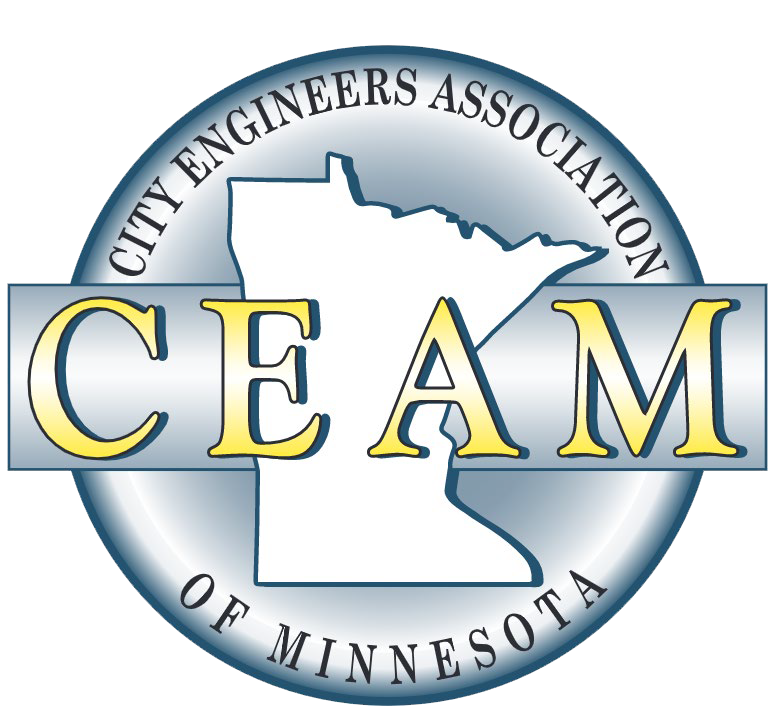
About Fusion Learning Partners
From learning opportunities and events to organizational development and collaborative initiatives, Fusion exists to strengthen and transform the communities where we work, live, and thrive.
Because Innovation Begins with Learning.
2025 Planning Committee
Mark DuChene, President City of Faribault
Debra Heiser, Co-Chair City of St. Louis Park
Eric Seaburg, Co-Chair Bolton & Menk, Inc.
Greg Anderson, SEH
George Bender, City of Chanhassen
Dan Boyum, Stantec
Dan Coyle, Kimley-Horn and Associates
Marc Culver, Bolton & Menk, Inc.
Jen Desrude, SEH
Steve Dodge, City of St. Paul
Jennifer Edison, WSB & Associates
Kristine Elwood, MnDOT – State Aid
Justin Femrite, City of Elk River
Alex Jordan, City of Shakopee
Janna Kieffer, Barr Engineering
Tony Kutzke, City of Woodbury
Matt Leonard, City of Monticello
Amy Marohn, City of Bloomington
Bob Moberg, 3pm Solutions
Phil Olson, City of Minnetonka
Jennifer Payne, City of Woodbury
Michael Payne, City of Plymouth
Nick Preisler, City of St. Michael
Paul Sandy, WSB & Associates
Chad Setterholm, Short Elliot Hendrickson, Inc.
Bob Simons, City of Bloomington
Brandon Stenglein, City of Maple Grove
Jim Studenski, TKDA
Michael Thompson, City of Plymouth
Steve Winter, MSA Professional Services




